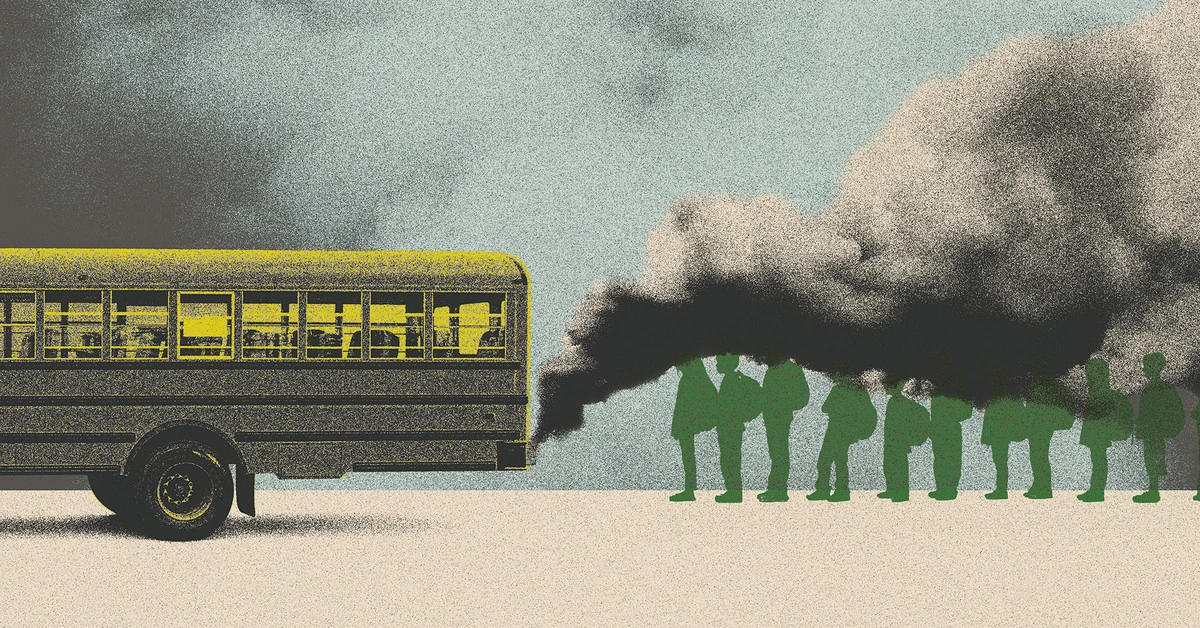the propane industry sees an opportunity to seize a share of the auto sector. Its representatives are working hard to convince public officials to switch to propane-fueled school buses, which they claim are “near-zero emissions” vehicles that are better for kids and the climate.
Except — that’s not true. Propane is still a polluting fuel: While it is refined differently than diesel and natural gas and combusted in uniquely styled engines, it still has a measurable impact on air quality and the climate. If PERC’s deceptive marketing to children, parents, and school administrators is successful, the propane industry threatens to lock in fossil fuels and their polluting emissions for another generation of schoolchildren.



Given that they’re stationary for so long, doesn’t that make a compelling case for batteries? Surely vehicles in continuous use benefit more from being connected to the grid. Forgive me if this is naive!
They need enough battery power to do their rounds. Outside that however, that same battery can act as a power bank to the mains. Effectively you can buy electricity when it’s momentarily cheap, and sell it back when the price spikes. So long as it’s charged for the next run, it’s fine.
This provides buffering to the system for intermittent sources e.g. solar, as well as making money from idle busses.
Ohhh I see. I was imagining busses somehow powered by a rail/cable at all times lol, which in hindsight doesn’t make any sense. The reality is very cool! Thanks for sharing.